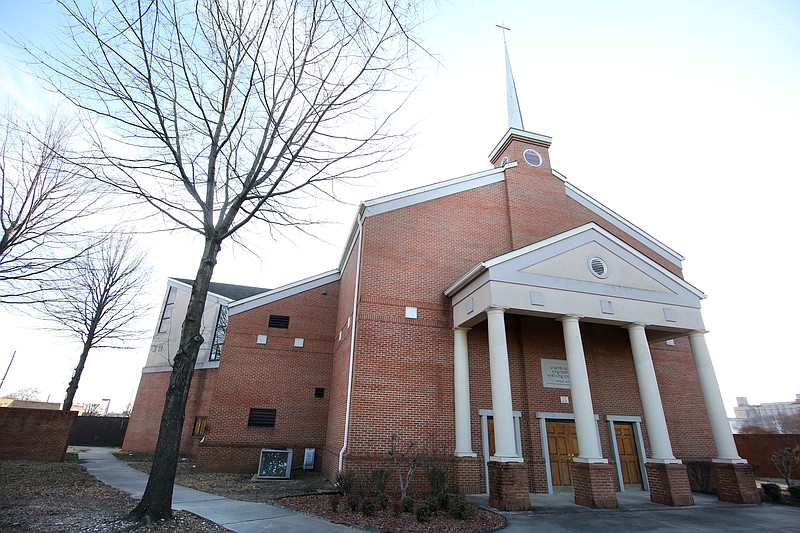Among the resolutions adopted by the Hamilton County Commission on Wednesday was one to award the private King School $154,577 for its mission to provide an elementary education to inner city children.
The amount is from the federal American Rescue Plan stimulus funds awarded the county in 2021 for so-called COVID relief.
The King School, opened in the fall of 2019 to eventually become a K-5 academy in a partnership with Chattanooga Christian School, focuses on family, education, diversity, community and faith. It is located in Olivet Baptist Church and offers only one class per grade and 12 students per class.
The money, according to the president of Chattanooga Christian, will be used for items such as classroom furniture, curriculum materials and building maintenance.
Some may wonder -- and at least one commissioner did -- why taxpayer funds are being used to assist a private school.
Commissioner David Sharpe, couching his remarks with praise for the "great work" the school performs in offering "opportunities for families who otherwise might not have access" to such an education, said he would not be voting for the resolution because he "swore an oath to support the constitution of the state of Tennessee" and in that constitution is the requirement that the state supports public education.
Before giving money to private education, the District 6 Democrat declared, the commission ought to be providing more money to defray the school district's $1 billion in deferred maintenance that was catalogued for commissioners several years ago.
Moments before Sharpe's comments, his fellow Democrat and commission member Katherlyn Geter said she would be recusing herself from the vote.
Why would his fellow Democrat not be in lockstep with him, especially where private schools that Democrats always claim are taking money from public schools are concerned?
Geter's grandson, she said, attends The King School.
The resolution passed 7-1, with Sharpe the only "no" vote.
But we think the commissioner's vote shows a short memory.
Only weeks ago, indeed less than a month ago, all nine commissioners were given an opportunity to list projects for which they wished some of the ARP funds to go. They were given no minimum or maximum amounts to request. The requested projects needed only to fit criteria for the funds.
Of the nine commissioners, Sharpe requested the most money, $2.2 million for various projects. Among them were playground improvements for Red Bank Elementary School, a new gymnasium at Rivermont Elementary School, rigging improvements at Chattanooga High School Center for Creative Arts, an air conditioning unit at Red Bank High School and fire code upgrades at Alpine Crest Elementary School.
Other commissioners listed additional items for the county's public schools.
But everything that was requested by commissioners didn't go to public sector entities, though most did. They also approved amounts to a food bank, veterans foundation, development corporation, civic engagement fund and ministry -- some $1.2 million and all private entities.
A $154,000 amount is a lot of money to many of us, but it's not a great lot considering that the county was awarded an astounding $71.4 million in ARP founds. It makes most of our heads swim when we consider such huge amounts, but the amount approved for The King School is only .22 (twenty-two hundredths of 1%) of the county's ARP funds.
The county has several dozen private schools, and many of them have deep pockets, long traditions or churches that support them. It would be unseemly to give taxpayer funds to many of them. But a collaboration of a faith-based school and a church that are trying to offer an alternative education in an inner-city area where few exist, and to a population that can't afford the traditional private schools, is another matter.
In an era when inner-city parents in Hamilton County and across the country are crying out for alternatives to public school for various reasons (safety, curriculum, discipline and family values, among them), a small bequest to a school that is trying to make a difference in a community where many public school advocates tell parents to simply stay the course doesn't seem like a big deal to us.
